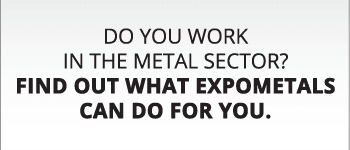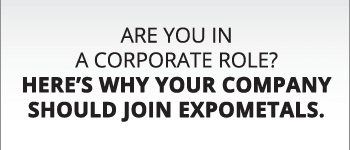
General metal industry news
From ferrous to non-ferrous, all the international news from the metallurgical industry
Scrap metal, for and against the EU export blockade

Even before being enacted, this measure is already very divisive: a review by the EU of the rules regarding the export of ferrous scrap, with tighter restrictions on the free flow of materials outside the Union territory.
Among those advocating for a stop to exports is a group of 69 members of the EU parliament led by Italian Massimiliano Salini, who in a letter of appeal called on the European Commission to review the current rules. "The increase in exports of recyclable waste from the EU is worrying: it harms our companies and threatens the European circular economy." According to the petitioners, excessive scrap exports to non-EU countries depress "the European production of green steel with electric furnaces: ferrous scrap is, in fact, a valuable resource for the steel industry that has a huge potential to reduce emissions, up to five tons of CO2." The reasons given are therefore ethical and ecological: "These exports should only be authorized to countries with environmental, climate, and health standards that are in line with the European ones," said Salini.
On the other side of the fence, there's the Italian association representing the scrap metal industry Assofermet Rottami, which in a statement dated 28 June hopes that “any form of export blockade is averted.” The association gives a complete picture of the situation: at the European level, only "42% of steel production comes from an electric furnace (EAF) and massively uses ferrous scrap." Scrap collection and processing operations are ensured by a rich and efficient network of specialized companies, scattered throughout the EU. Since, however, the prevailing productions (58% of cases) are based on BOF steelmaking, considered to be more economically advantageous, the result is an "excess of steel scrap revenue, which cannot be absorbed in the EU steel industry."
The Italian situation, explains Assofermet, is reversed, with 84.7% of steel from electric furnaces versus 15.3% of production from blast furnaces. "However, this surplus demand has always been met by purchases made in the EU territory": in 2020, Italy bought from the EU-28 countries almost 5 Mt of ferrous scrap.
According to the association, the inevitable outcome in the event of a freeze on scrap exports would be an "economic collapse" of their value, resulting in irreparable damage to the recovery chain: "An initiative aimed at improving the environmental performance of the EU economy would, therefore, end up achieving the diametrically opposite effect, namely the potential destruction of one of the historical pillars of our circular economy."
It would rather be worth considering "a general restructuring of the steel production plants", which would include and impose "the closure of many BOF plants and the replacement of blast furnaces with electric furnaces": a long-term strategic plan, therefore, with shared objectives and large investments.
The German scrap association BDSV has also expressed concerns about the possibility of the European Commission restricting EU scrap exports. In the context of the EU Waste Shipment Regulation revision, BDSV calls for a distinction between secondary raw materials and waste without value. Currently, trade barriers for secondary raw materials are threatened by the planned tightening of regulations for green-listed waste shipments to third countries. But BDSV says: “Steel scrap is not waste, it's a climate protection product! Restricting exports would be nonsense in terms of climate policy”. The consequences of export barriers would be less scrap collection and processing, less investment in research and development, and, all in all, a serious threat to the existence of the European steel recycling companies.
The European Commission launched the revision of the regulation on the transboundary waste shipment, Regulation 1013/2006, more than a year ago. The issue is currently facing strong political pressure.
---
You may be interested in reading:
The (failed) military missions that paved the way for new controls on threadings
Reels, spools, drums, and bobbins: the basics and the latest
Let’s talk quality: a short essay on this magic word



